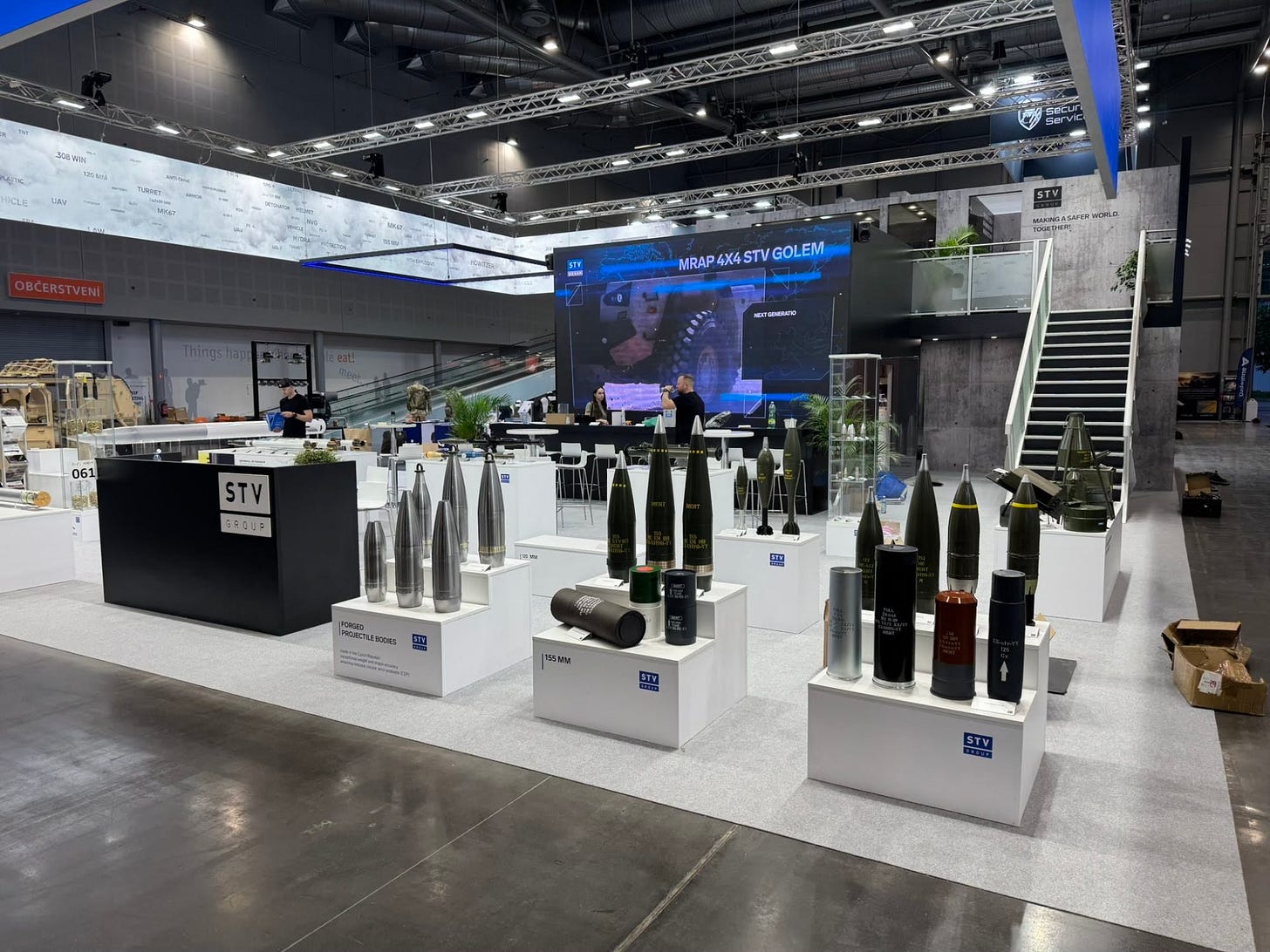STV and Post-Quantum Join Forces On Quantum-safe Defence Communications
STV Group has joined forces with UK firm Post-Quantum to bring quantum-safe communications to NATO and allied defence networks
Quantum computers and the vast computing power that they will unleash is largely still a theoretical concept, but many believe that the reality is no longer an if but a when. To that end, today, the Czech-based defence prime STV Group has now inked a multi-year deal with UK cybersecurity firm Post-Quantum. Notably, the deal is one of the first major post-quantum cryptography partnerships in the defence industry.
The deal is structured as a licensing partnership, where STV will integrate Post-Quantum’s technology into its own product line-up. STV currently has customers across NATO, European, and allied defence network environments. The integration will mean all communications and data passed between and around parties using STV products will be encrypted with tech that is “quantum-ready” — that is, set up to be secure even when malicious hackers armed with the power of quantum computing are trying to break in to access it, a situation in which today’s encryption would be rendered obsolete.
Quantum computers, once powerful enough, are expected to break many of today’s widely used encryption systems, putting decades of sensitive government and military data at risk of retrospective compromise. Post-Quantum’s platform, already tested by NATO, promises to safeguard communications against this “Harvest Now, Decrypt Later” (HNDL) threat by combining quantum-resilient encryption with proven interoperability between systems using different post-quantum algorithms.
For STV, the partnership marks a significant step in expanding its cybersecurity portfolio. Up to now, STV’s strength and main products have been in areas like munitions, armoured platforms, and defence engineering. Pavel Kudrhalt, CEO of STV, said the company was “building an uncompromising, end-to-end secure ecosystem for the future.”
“Our customers demand full supply chain assurance, from manufacturing and tamper-proof transport to deployment and monitoring,” he said. “With the rising threat of HNDL attacks, quantum-safe defences are no longer optional. Post-Quantum’s platform doesn’t just lead the field — it allows STV to be the first mover to redefine the very standards of digital trust in defence solutions.”
The agreement will see Post-Quantum’s modular platform embedded across STV’s secure communications systems, offering protection for everything from command-and-control networks to battlefield drones. Kudrhalt said the collaboration would give NATO allies and EU partners “the strongest possible protection for the quantum era.”
For Post-Quantum, the partnership represents the culmination of more than a decade of work to commercialise post-quantum cryptography (PQC). CEO Rikky Hasan said STV’s experience operating at the front line made it a uniquely capable partner.
“STV has the operational agility to move at the pace required,” Hasan told Resilience Media. “This agility has been forged by STV’s extensive role in Ukraine, standing side-by-side as a key supplier on the ground and moving at the pace demanded by the war. There’s no substitute for this type of real-world agility, and it makes STV the ideal partner to integrate PQC into defence technology.”
Post-Quantum’s technology has already been through NATO testing.
“Back in 2022, NATO’s Cyber Security Centre successfully tested our Hybrid PQ Virtual Private Network,” Hasan said. “The tests demonstrated the ability of our platform to support a variety of different quantum-safe algorithms and to ensure interoperability between parties using different algorithms.”
The protocol, he added, has since been standardised by the Internet Engineering Task Force as the Hybrid Post-Quantum VPN standard – now the global benchmark for secure connectivity. “NATO’s successful tests are a significant proof point for our technology, which has been market-ready for two years already,” Hasan said.
The HNDL problem is becoming an urgent concern for defence organisations worldwide. Adversaries are believed to be capturing encrypted data today in the expectation that future quantum systems will eventually be able to decrypt it. Hasan said this was no longer a theoretical risk.
“HNDL threats are widely understood to be a real and present danger,” he said. “When introducing the Quantum Computing Cybersecurity Preparedness Act in 2022 the US government referred to HNDL threat as ‘existential’, which it most certainly is – particularly in defence, where battlefield plans and R&D information both have a long shelf-life.”
“Our platform provides end-to-end protection against attack by both quantum and classical computers,” Hasan added. “Post-Quantum was the first company in the world to begin R&D into PQC way back in 2009, and we were also the original creators of the Classic McEliece algorithm. It’s been a long, hard road, but now the world has awoken to the risk — it means we are perhaps the only company with real-world PQC products being deployed in real-world operational environments today.”
Founded in London in 2009, Post-Quantum has emerged as a leading player in the development of quantum-resistant encryption and authentication technologies. Its clients include NATO, critical infrastructure operators, and major banks.
For STV, headquartered in Prague, the agreement underscores its evolution from a traditional munitions producer into a full-spectrum defence technology firm. Building on a century of industrial heritage, the company now develops armoured vehicle platforms, loitering systems, and secure communications, while also leading Europe in the safe disposal of surplus ammunition.
Both firms see the deal as a turning point in the adoption of quantum-safe defences.
As Hasan put it: “Together, we are unleashing a new wave of secure, quantum-safe solutions that protect the world’s most sensitive data against today’s adversaries and tomorrow’s quantum threats.”


